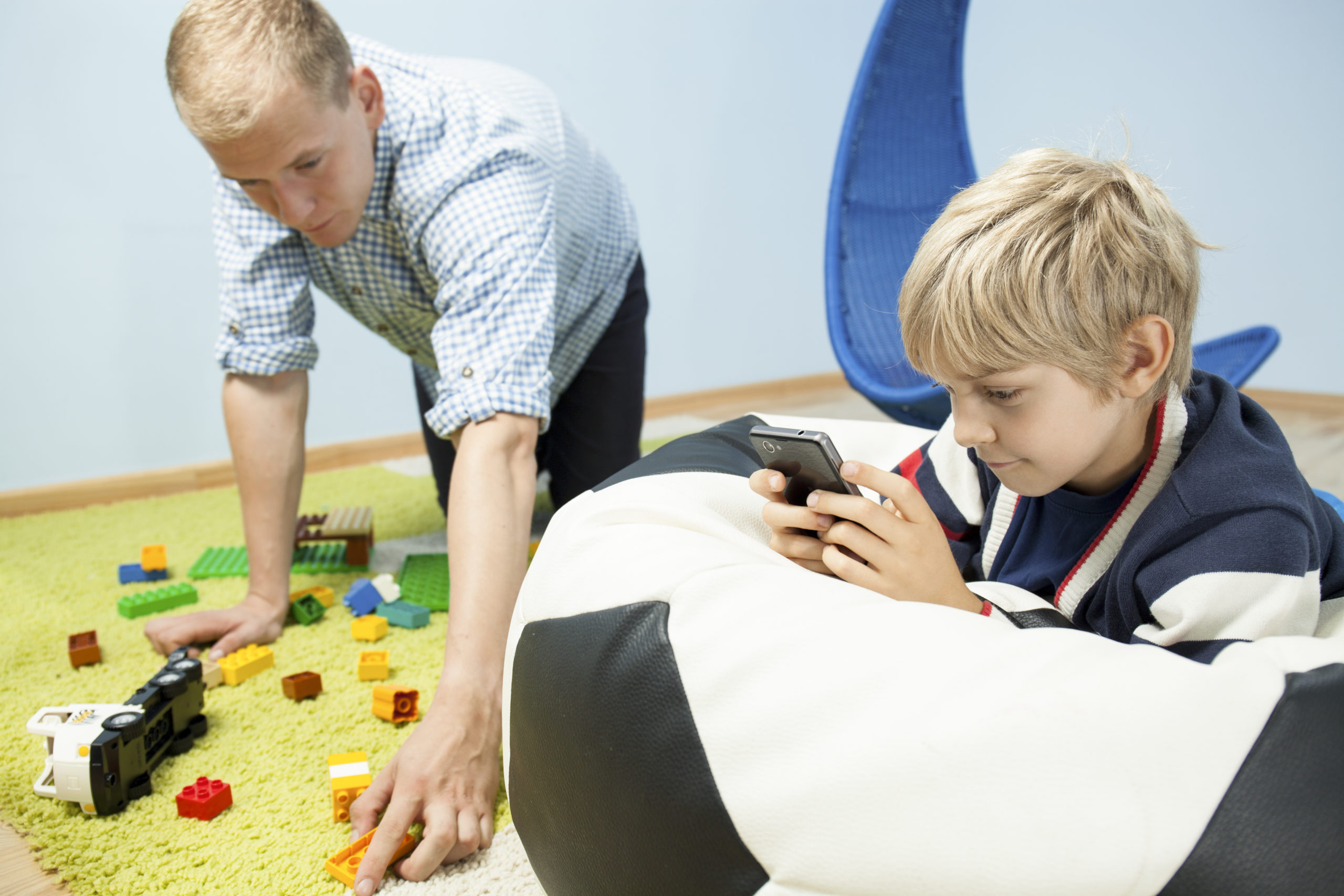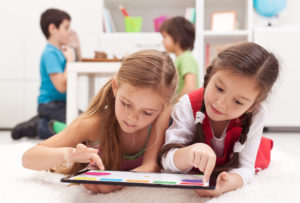Parents have the best intentions when it comes to their children, especially when we see them struggling with uncomfortable feelings like anxiety, disappointment, or sadness. It’s normal for parents to want to make kids feel better! We try to soothe them with our words and actions the best ways we know how, but sometimes our attempts backfire in the short or long term. Even when done with the best intentions, there are some ways of responding to our kids’ anxiety, frustration, and distress that are not only unhelpful – but can actually make things worse.
As the pandemic wages on, parents are increasingly faced with the challenge of supporting children and teens who are feeling anxious and frustrated. In my clinical work with families, I’m seeing parents doing many things right. I’m also observing responses from parents that are well-meaning but counterproductive. Here are some of the most common mistakes parents are making with their kids right now:
Telling them not to worry
Never in the history of the world has anyone’s anxiety been reduced by someone telling them “don’t worry”! In fact, worry and anxiety are completely normal emotions that we all experience at times. When a child communicates that they are worried, we dismiss them and their emotions by telling them not to worry. This can leave them feeling badly about themselves, perceiving their response to the situation as abnormal, and reduces the likelihood that they will come to us with their feelings and concerns in the future.
The reality is that when we tell kids “don’t worry”, we are really trying to manage our own anxieties and concerns. Our children sharing their uncomfortable feelings causes us to feel a range of uncomfortable feelings in response – and we want to make all of those go away as soon as possible. Telling a child not to worry is really a way we attempt to soothe ourselves, but it has the unfortunate impact of dismissing the child’s feelings and leaving them on their own to work through those without adult support.
Instead of saying “don’t worry” try one of the following responses instead:
- “I can understand how that would feel scary for you.”
- “Tell me more about what’s going on.”
- “I sometimes worry about that, too. Here are some things I find helpful.”
The goal is to respond in a way that let’s your child know you’ve heard them, their feelings are valid, and you are there to support them.
Being overly positive and trying to force the silver lining
When we see our children scared or hurting it’s a natural response to want to turn those frowns or tears into smiles by encouraging them to “look on the bright side”, or distracting them with something they enjoy. While this may help for a moment, constantly distracting kids from their uncomfortable feelings by focusing on something positive is actually counterproductive. Not only do we send the message that it’s not okay to have a range of emotions, including uncomfortable ones, but we risk kids feeling unheard and unsupported. This approach also teaches them that they can’t survive emotions like fear or hurt, so it’s necessary to immediately distract with something positive that brings comfort. This can inadvertently lead kids down a path of engaging in all kinds of problematic avoidance behaviors to handle discomfort in their lives.
Instead of immediately trying to shift kids into a positive frame of mind when they express disappointment, frustration, or fear, do the following:
- Listen patiently without interrupting, even if you don’t agree with their concerns or perspective.
- Empathize with them by letting them know you’ve felt that way at times, too, can understand that they’re struggling.
- Ask if they are wanting suggestions or support with problem solving. If so, offer strategies or help them think of solutions to whatever is going on. If not, be willing to back off and let them know you are available anytime they want to talk or need support.
Over-compensating and rescuing
There’s no doubt that many children and teens are struggling more than usual as we head into month 10 of pandemic life. This can especially be the case right now as kids face the disappointment and sadness that accompanies changes to holiday plans and expectations. Because of that, some parents are making the mistake of overcompensating for kids as a way to balance the extra challenges they are experiencing. Acknowledging that kids are experiencing lots of big feelings, and being flexible about expectations can certainly be helpful. However, making excuses for kids and compensating for these challenges can go too far, and can actually create additional problems.
Over-compensating or rescuing generally looks like a parent jumping in to solve every problem the child encounters, or to prevent them from experiencing challenges or discomfort altogether. Some examples include:
- Contacting an older child’s teachers to complain about expectations, ask for exceptions, or argue about grades – without having the child attempt to problem solve or communicate with them first.
- Allowing kids to consistently do things you normally wouldn’t like staying up late, eating candy at bedtime, or playing video games for hours on end.
- Not holding them accountable for helping with chores and other basic responsibilities.
While parents might view these as appropriate ways to “help” kids when they are struggling, in the end these kinds of consistent rescuing behaviors can lead children and teens to feel worse about themselves and their abilities. Being flexible around expectations is definitely helpful when kids are feeling overwhelmed, but we need to be careful not to take it too far. If you’re finding that you’ve taken most responsibilities off your child’s plate because you feel badly for them during this time, it’s best to get them back into normal expectations and responsibilities ASAP.
Being overly-rigid and not adjusting expectations
On the other end of the expectations spectrum (and the opposite of the issue discussed above) is the problematic behavior of not flexibly adapting expectations to support kids in school and at home. While children generally benefit from parents having appropriately high expectations, during times of prolonged uncertainty and stress it’s best to take a more flexible approach. Parents need to recognize that these times are not “business as usual”, and it is natural for children and teens to feel more overwhelmed or frustrated about everything in their lives. Holding them to the same standards for school performance under these unique circumstances may leave some kids feeling unheard and unsupported.
If your child is communicating consistent overwhelm, anxiety, or low mood it may be helpful to discuss what expectations to back off on, at least temporarily. Adjusting expectations during times of struggle helps kids feel heard, and can be an important part of helping them feel more in control and capable.
Missing or ignoring kids’ bids for attention
Children of all ages need and want parental attention, although sometimes they may act like they are doing their best to push us away! While it may not make sense to us as adults, children often let us know they need more support by acting out in ways that feel unpleasant to us. This can include whining or crying, repeatedly asking us questions, being clingy, constantly interrupting our conversations and activities, throwing tantrums, or isolating themselves in their bedroom for hours.
It seems counter-intuitive to use as adults, but these can all be ways kids communicate that they need support and actually want to connect. We call them “bids for attention”, and they are a child’s attempt to have us focus on them, even for just a moment. Too often we instead focus on the frustration we feel at having to manage the behaviors, and completely miss the underlying message they are communicating.
Right now many children and teens are acting out in a variety of ways in an effort to gain the support and attention of parents. While many parents are rightfully feeling overwhelmed with work and home responsibilities (on top of managing virtual school), it’s important to prioritize quality time with kids even for short time periods Taking even a few minutes during the day to fully focus on your child via a game, meal, or conversation can go a long way to filling their need for attention. If you’re noticing that your child is acting out or isolating more than usual it might be time to turn your focus away from other responsibilities and toward your child a little more regularly.
Allowing endless and unmonitored screen time
I get it – the pandemic has been going on for a long time now and you feel out of ideas to keep your kids occupied. You’re tired of managing their complaints of boredom, refereeing sibling fights, and telling them they can’t do things. In the moment it can feel like throwing up your hands and letting them spend their days (and nights) on devices solves all of these problems. But, you’re actually kicking the can down the road and creating a host of even bigger issues for you and your kids.
Kids of all ages need parents to set limits on device use. Full stop. No exceptions. When we decide to give our children access to these devices, we take on the responsibility of helping them use those devices, and associated media, in healthy ways. That means setting time and content limits in accordance with their developmental level and needs. It also means being aware of what they are doing online, and providing guidance and support as needed.
While TV, tablets, gaming systems, and smart phones seem like great distractions that keep kids occupied for long periods, excessive use leads to more mental health and behavior problems. There are also physical health concerns like worse sleep and vision problems. Parents need to consider the very real safety concerns that can arise when allowing kids unregulated access to the internet, including cyber predators, bullying, scams, and more. For all of these reasons, and many more, it is not okay to completely relax time and content restrictions for kids – even in the middle of a pandemic. If you recognize that you’ve been lax in this area, now is the time to get back to healthy limits and boundaries on device use. The kids likely won’t be excited about it, but it will go a long way to keeping them safer, healthier, and happier in the big picture.








